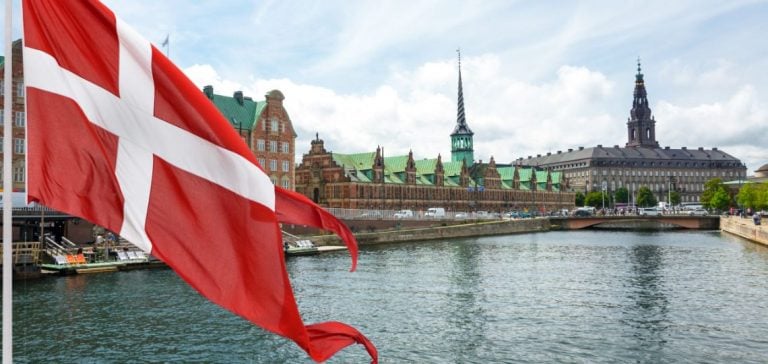The deadline set by the European Union for its member states to reach a 90% gas storage threshold by November 1, 2024, is approaching, but Denmark has already confirmed it will not meet this target. The Danish Energy Agency (DEA) informed the European Commission that due to technical delays and maintenance work, the country will only have 73.8% of its storage capacity filled by the end of October.
This delay is mainly attributed to the postponement of the offshore Tyra gas field’s production restart, the largest gas field in Denmark. Tyra’s reopening was initially scheduled for March 2024 after redevelopment work that began in 2019, but technical issues in April pushed back the full ramp-up to mid-November. Furthermore, maintenance operations on the Baltic Pipe, which connects Norway to Denmark, also hindered gas injections.
Technical Delays and Impact on Denmark’s Gas Strategy
Denmark is among the few EU countries that have not reached the required 90% threshold within the given timeframe. However, the Danish agency states that it is still technically possible to meet this target by December 1st. Despite these delays, the overall energy situation in Europe remains stable, according to the DEA, partly due to continued gas imports from Germany, compensating for the lack of domestic production during Tyra’s maintenance.
The gas storage requirements became a political priority for the EU after the 2022 energy crisis. The storage obligation, introduced in June 2022, was designed to ensure that member states have sufficient reserves in the event of supply disruptions. Denmark, despite its small storage capacity of 10.4 TWh (1 billion m³), must comply with these obligations while heavily relying on its own gas resources.
The Role of the Tyra Gas Field in Denmark’s Energy Policy
The technical capacity of the Tyra gas field, estimated at around 8.1 million cubic meters per day, is expected to be sufficient to meet Denmark’s internal demand once full production is restored. The gas field is operated by TotalEnergies, along with partners such as BlueNord and Nordsofonden. Full restoration of Tyra’s operations is expected between November 15 and 30, 2024, according to the latest forecasts from TotalEnergies.
The redevelopment of Tyra was necessary due to the natural subsidence of the chalk reservoir after years of production. This delay in Tyra’s restart affects Denmark’s long-term strategies, which relied on this resource to maintain energy independence while reducing reliance on gas imports from Germany and Russia.
Implications for the European Gas Market
Despite these delays, European gas prices remain high, with a recent assessment of the Dutch TTF (Title Transfer Facility) benchmark price at €41.35/MWh. The implementation of a gas export tax by Germany, which will end in 2025, has reduced the economic attractiveness of Danish gas exports to Europe. This further complicates Denmark’s efforts to meet EU requirements while pursuing its own energy goals.
The production delays at Tyra and the strict storage policies imposed by the EU highlight the challenges small member states face in aligning national policies with regional obligations, especially in a tight energy market context.






















